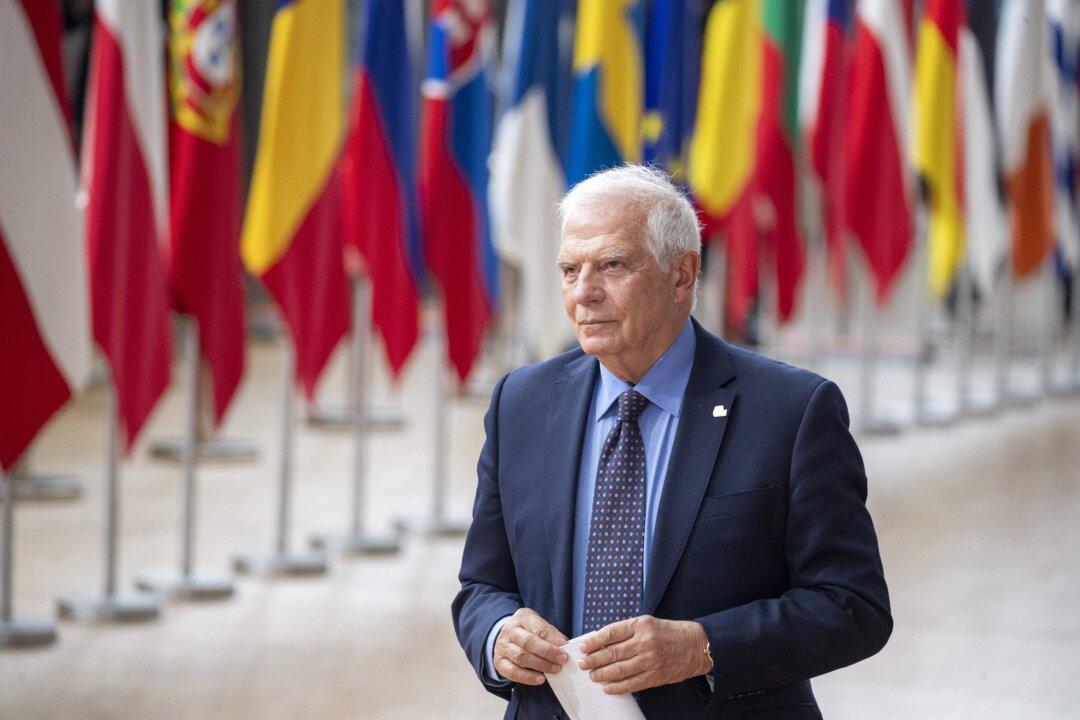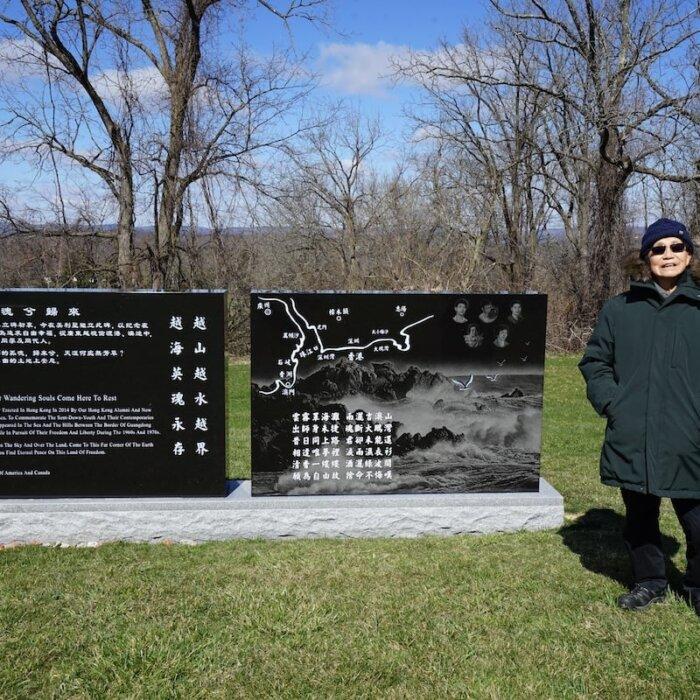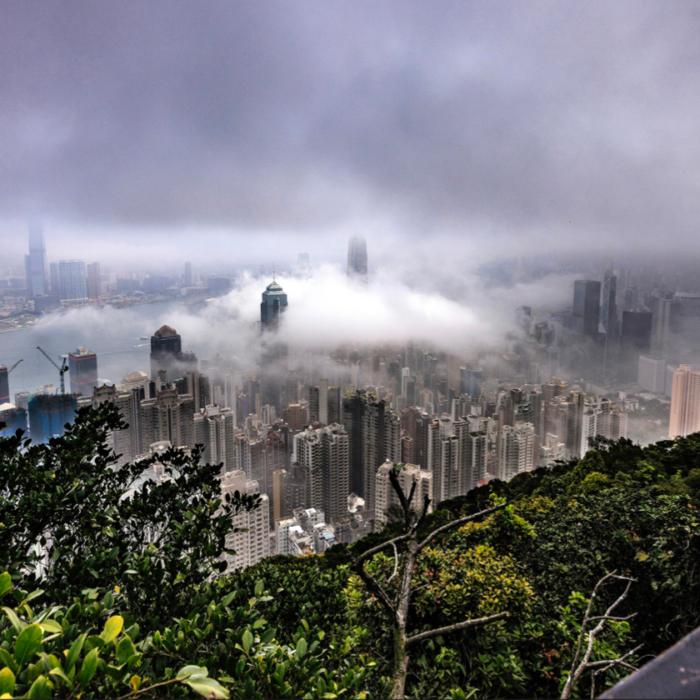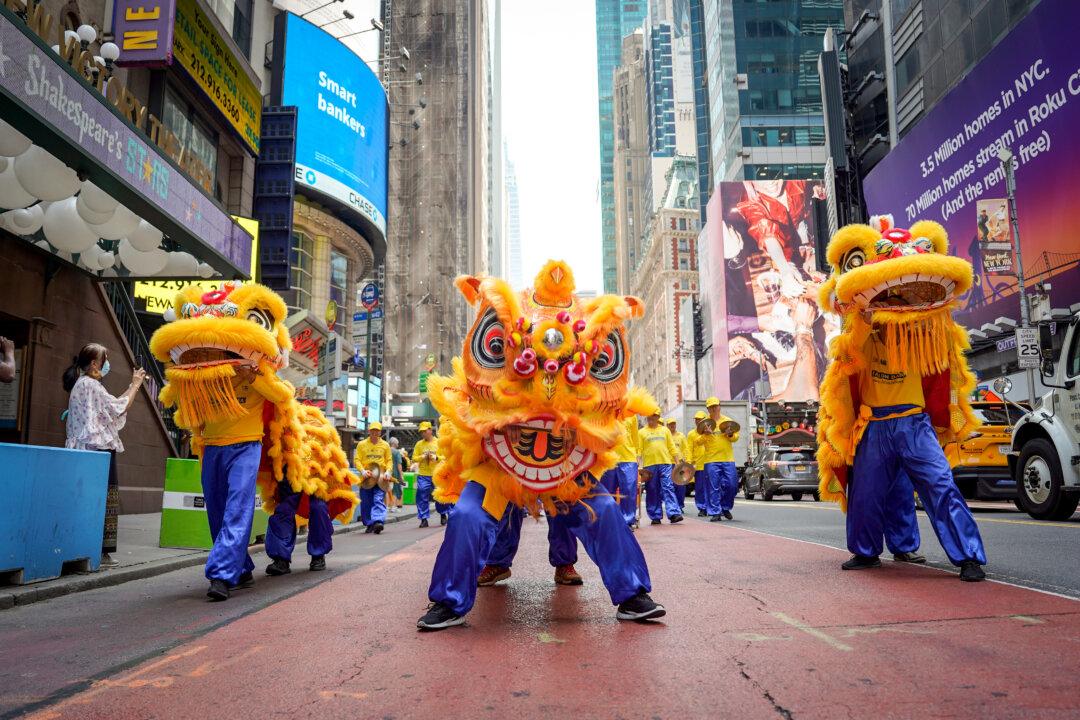The European Union has spoken out about the deterioration of Hong Kong’s freedom and autonomy, with European Commission Vice-President Josep Borrell saying that Beijing is “dismantling” its promise of a “one country, two systems” principle in Hong Kong.
The principle, legally binding under the Sino-British Joint Declaration, states that Hong Kong is part of China but retains its own systems and way of life until 2047. The promise by China’s Chinese Communist Party (CCP) had always been met with skepticism by the international community as it was negotiating if Hong Kong would be handed back to CCP rule, which it was by the British in 1997.
“The 2023 annual report illustrates in great detail the continuous erosion of the rights and freedoms of the people of Hong Kong and the dismantling of the ‘one country two systems’ principle,” Mr. Borrell said.
“The political opposition in Hong Kong has been effectively excluded from elections. The National Security Law continues to be used to stifle dissent, including abroad. These developments undermine trust in the rule of law in Hong Kong and affect Hong Kong’s standing as an international business hub.”
This is the Commission’s 26th annual report on developments in Hong Kong since the return of the former British colony to China.
Erosion of Autonomy and Fundamental Rights
The EU report first highlighted a further decrease of political pluralism in Hong Kong.Opposition parties were unable to organise fundraising events, and the District Council election took place on Dec. 10, 2023 saw a historically low turnout rate.
Another example given is that during the nomination period for the election from Oct. 17 to Oct. 30, 2023, politicians from both pro-Beijing and pro-democracy camps highlighted difficulties in securing enough nominations. In the end, no candidate from the Democratic Party met the criteria to stand in the election.
National Security Law Applied Extraterritorially
Furthermore, the report noted that trials brought against pro-democracy activists, advocates, and politicians have continued into the third year since the CCP’s imposition of its NSL in late May of 2020, with some cases being considerably delayed; that is, being dragged on without a result for those charged.“In an extraterritorial application of the NSL, Hong Kong authorities twice issued arrest warrants against Hong Kong pro-democracy activists in exile. In Hong Kong, relatives and other contacts of wanted activists were subsequently interrogated by police,” according to the report.
In addition, while internet freedom has been “generally upheld in Hong Kong,” the authorities continue to block online content that they considered sensitive, such as the website of Hong Kong Watch, a London-based non-governmental organisation that advocates for human rights, freedom, and rule of law in the city.
“These developments continue to undermine confidence in the rule of law in Hong Kong,” the report stated.
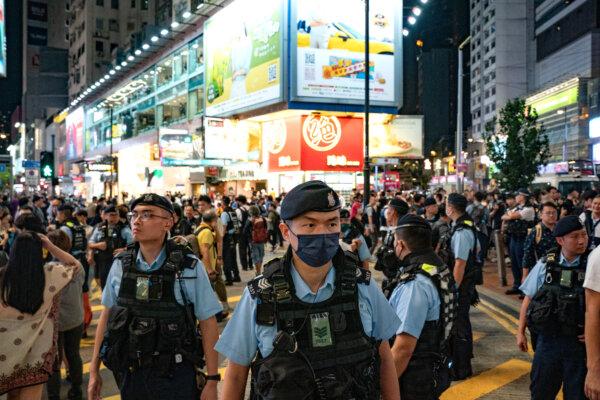
Slight Economic Uptick After COVID Restrictions Lifted
The report also addressed the normalisation of economic relations after Hong Kong authorities relaxed their COVID-related travel restrictions, and highlighted the substantial commercial links between the EU and Hong Kong.“The Hong Kong economy grew by 3.2 percent in 2023. This follows 4 years of mostly negative growth (-1.7 percent in 2019; -6.5 percent in 2020; -3.5 percent in 2022). However, even with growth in 2023 factored in, Hong Kong’s economy remained below the level of 2018 when adjusted for inflation. In 2023, inflation remained under control, standing at 2.1 percent,” the report reads.
“Authorities lifted the last COVID-19 related travel restrictions in February 2023. The strict measures taken in response to the COVID-19 outbreak in 2020—including 3 weeks of quarantine for incoming travellers—had de facto isolated Hong Kong from the rest of the world.”
EU’s Response to Changes in Hong Kong
Based on the report, the EU has, on multiple occasions in both public and personal exchanges, raised concerns about the developments in Hong Kong’s governance after its return to China, with Vice-President Borrell expressing the EU’s concerns through a number of posts on X. Mr. Borell is also the High Representative of the EU for Foreign Affairs and Security Policy.Some measures to address the CCP’s dismantling of Hong Kong’s autonomy were adopted by the EU and its member states in response to the NSL crisis during Council Conclusions in July 2020, just a month after the law was passed in Hong Kong.
The package of measures passed remain in force: a review of the asylum, migration, visa and residency policy, and of extradition agreements; scrutiny and limitation of exports of sensitive equipment; observation of trials; support for civil society; the possibility of more scholarships and academic exchanges; monitoring of the extraterritorial impact of the law; and the refraining from launching new negotiations with Hong Kong.
A spokesman for the Hong Kong authorities accused the EU of ignoring “the large-scale and incessant riots that occurred in 2019,” which caused the implementation of the NSL in June 2020.
“The EU has also deliberately neglected the fact that the NSL has enabled the livelihood and economic activities of the Hong Kong community, and as well the business environment, to return to normalcy. The EU has demonstrated hypocrisy with double standards,” the spokesman said.
Almost a year later, the authorities and Beijing passed the NSL and cited these riotous actions as one of the reasons that the law was necessary for Hong Kong. At the time, protests were banned due to the COVID-19 pandemic.
